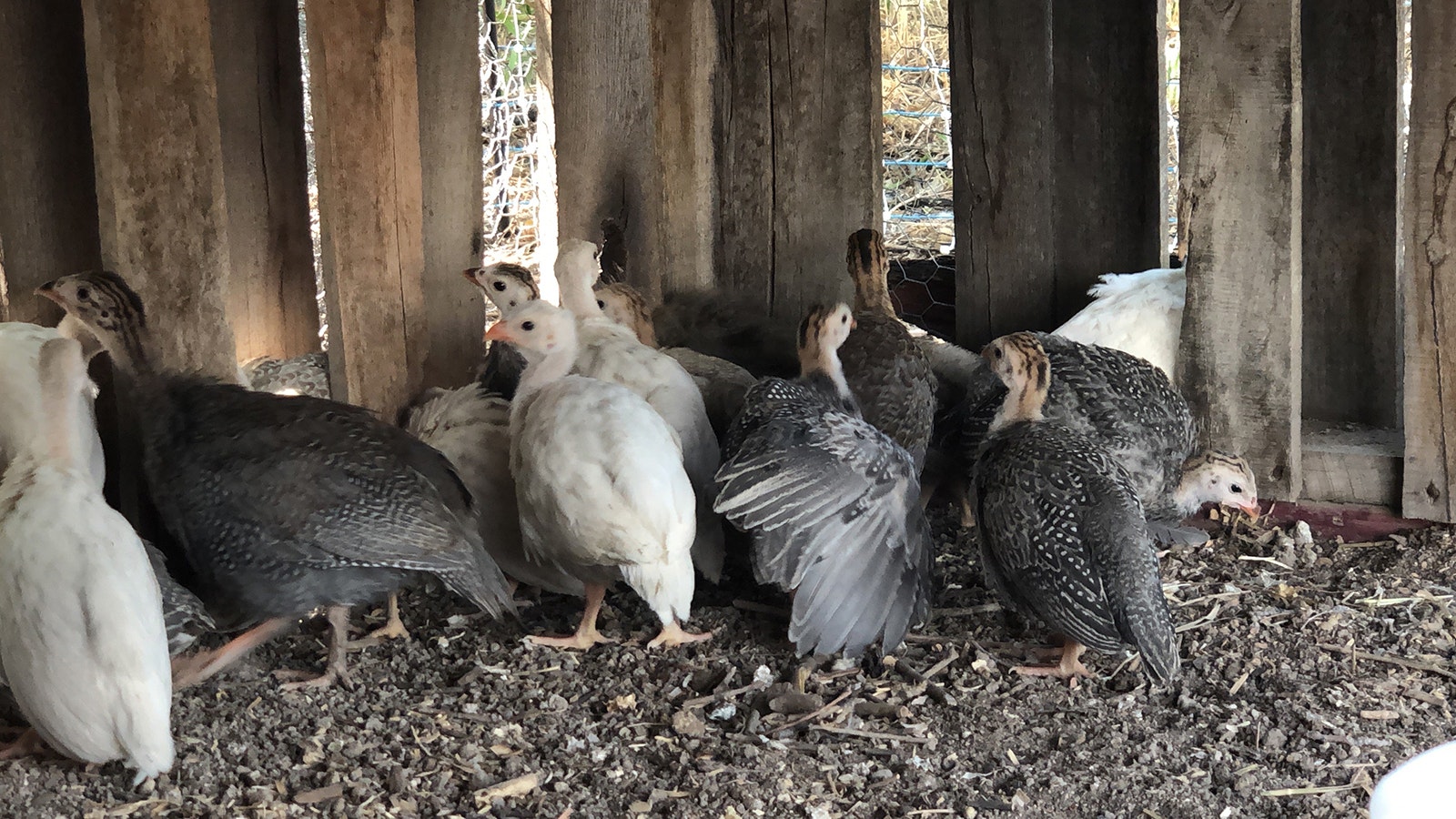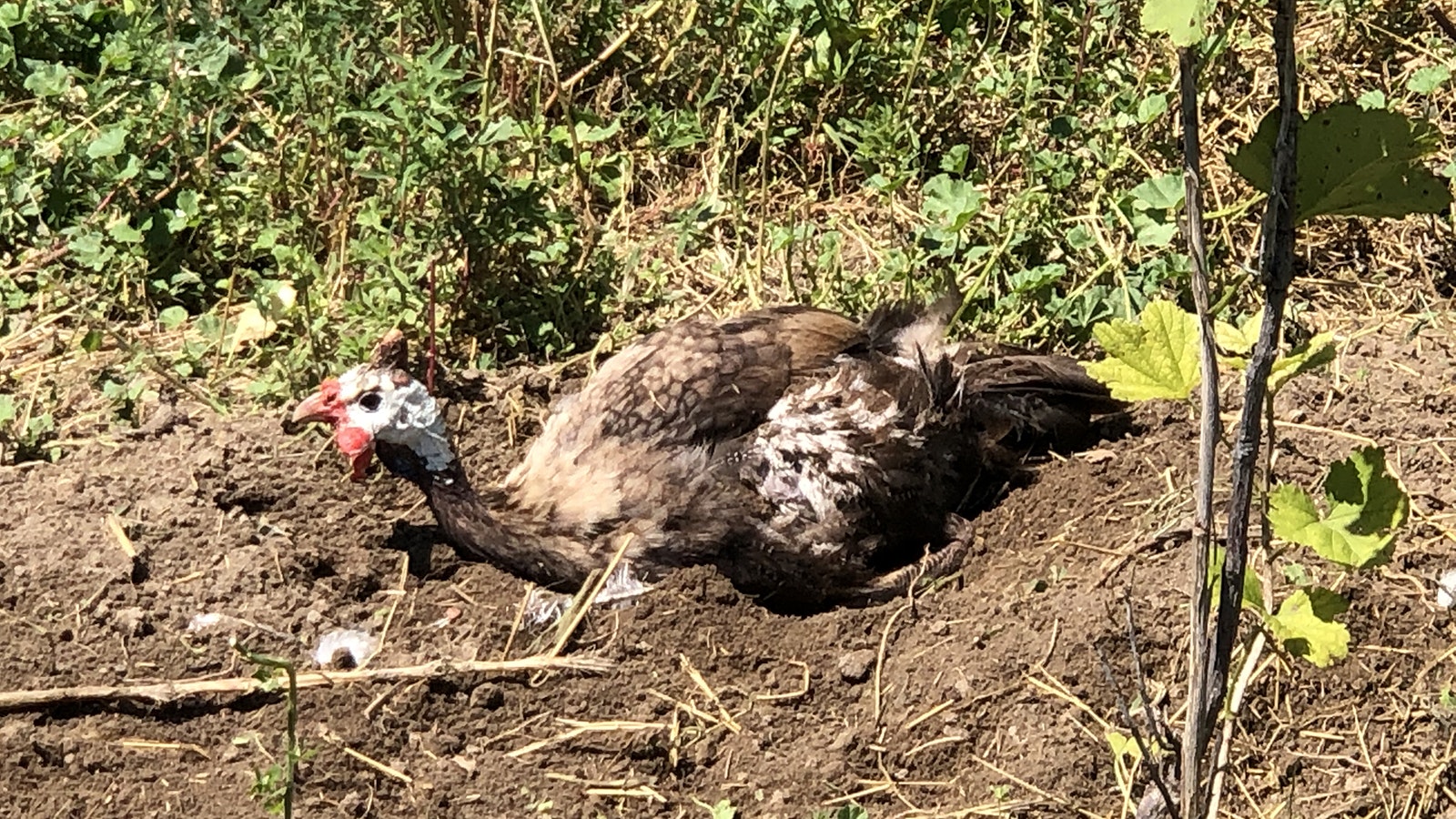Suzanne Tietjen and her husband were thrilled to find a nice 5-acre rural property near Torrington but excitement turned to disgust when they discovered it was totally infested with ticks.
“We moved out here in 2020, and I had at least one tick on me every day,” she told Cowboy State Daily.
The property includes some woods and a grassy field, which made for a veritable tick paradise, and the horrible little parasites were eager to have fresh human hosts on the menu.
Guinea Fowl Were The Answer
Wyoming is home to Rocky Mountain wood ticks, and depending on the area and season, potentially a lot of them. That’s not the species that carries dreaded Lyme disease, but they can still pass Colorado tick fever and other nasty infections to humans and pets.
At first, Tietjen was at a loss over what to do. But she caught a little ray of hope while reading a book titled “Gardening With Guineas,” which states that guineafowl like to gobble up ticks.
Figuring she had nothing to lose, Tietjen ordered some baby guinea fowl, called keets, from a business called Guinea Farm in New Vienna, Iowa.
The company charges $5.35 - $7.50 per bird, with a minimum order of 12.
There’s a good reason why they won’t ship any fewer than a dozen at a time, Tietjen said.
“Keets are tiny, smaller than baby chicks,” she said. “They don’t have the size to stay warm by huddling if there are too few of them. So, they won’t survive the cold of being shipped if there aren’t enough of them for a warm huddle.”
The keets grew quickly and adapted well to life on her property.
And their tick-slaying prowess exceeded all her expectations.
“That first year out here, I had ticks every day. With the guinea fowl, we didn’t see a single tick the next year. And we’ve seen maybe one in the years after that,” she said.
The guinea fowl started breeding and reproducing. Tietjen now has a flock of 25-30 patrolling her place, as well as some of her neighbors’ properties.

‘His Snake Dog Had Gone Deaf’
Guinea fowl are native to Africa. Tietjen said when the birds are fully grown, they’re about the size of small chickens. They are fairly low maintenance, but also like to wander. So, she was concerned about what her neighbors might think.
“I talked to my neighbor who is a rancher, because I knew the guinea fowl weren’t going to respect property lines, so I wanted to let him know.”
Instead of being upset, her neighbor was thrilled to have effective tick control on his property too. He knew a thing or two about guinea fowl and told her that they’re also good at killing rattlesnakes.
“He was excited to have them on his property, because his snake dog had gone deaf and couldn’t hunt rattlesnakes anymore,” Tietjen said.
Stranger Alert!
One drawback with guinea fowl is that “they can be terribly noisy,” she said.
But even than can be plus, because that means they’re great at warning of the approach of strangers. The birds have an incredibly loud, grating alarm call, Tietjen said.
“They have a reputation for being stupid, but I don’t think they are,” she said, because her flock has learned to distinguish between familiar people and strangers.
“They don’t give the alarm call for the UPS truck, the FedEx truck or any of our vehicles. But if a stranger comes around, they’ll start raising a racket,” she said.
“It’s like, ‘Ack! Ack! Ack!’ Very loud. It’s almost like they’re screaming,” Tietjen said.
‘Bird, Bird, Birdy-Bird’
Tietjen said the guinea fowl are mostly self-sufficient. During the warm months, they wander freely and feed themselves on ticks, insects and whatever else they can find.
Each evening around 6, she calls them in so she can put them in their pen for the night.
She began teaching them to come to her call by tempting them with millet, a white grain that the guinea fowl relish.
“My call is kind of dumb,” Tietjen said with a laugh. “It’s just, ‘bird, bird, birdy-bird.’ It’s just a dumb thing. Anything anybody made up would work, but they learn pretty quickly that millet is associated with that call, so they come right in.”
Grown guinea fowl can fly for short distances, but they prefer to walk or run, she said.
“If there’s a threat, like a dog or a coyote, they’ll fly up into the trees,” Tietjen said, adding that they’re good at evading predators, although she’s lost a few to racoons and owls.
During the winter, the guinea fowl like to huddle up in their pen, and Tietjen keeps them hardy by feeding them high-protein grains.
‘They’re Good Entertainment’
They’re not particularly affectionate, but they’re fun to watch, she said.
“Their courtship rituals are hilarious,” Tiejen said. “They have races around the pen, around buildings or whatever. They just run and run and run. And whoever can run the fastest for the longest gets the girl.
“They’re good entertainment. They don’t get on my deck and poop, even though they could. But they mostly seem happy to just hang out in the grass and look for bugs.”
Mark Heinz can be reached at mark@cowboystatedaily.com.







